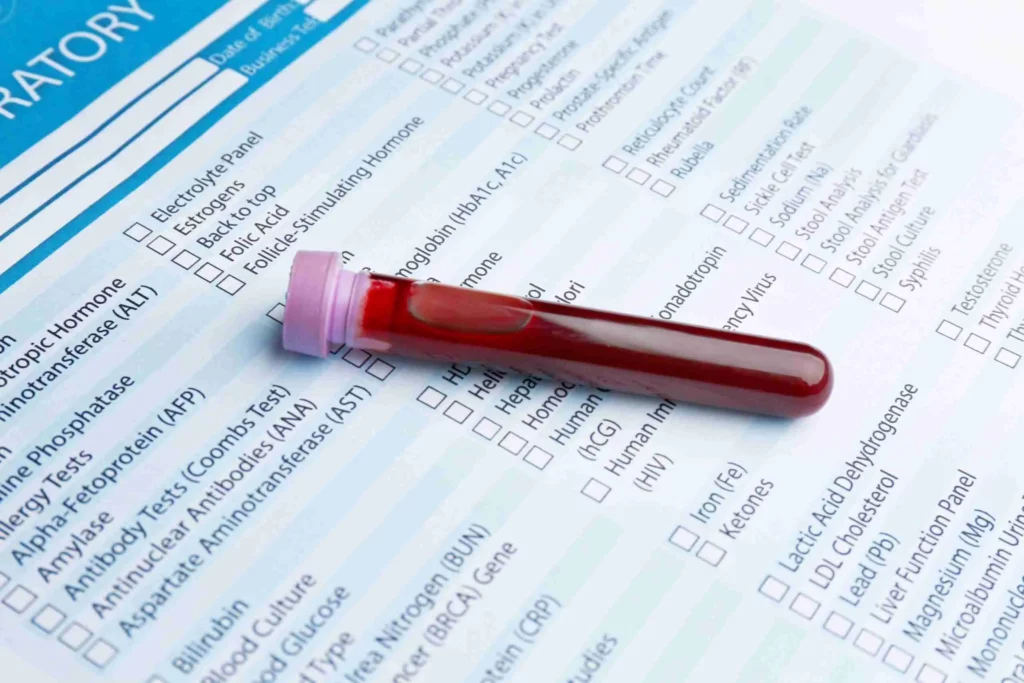Your kidneys are a pair of organs designed to maintain the fluid and electrolyte balance of the body. They also perform the important function of removing excess water and soluble wastes from the body to protect it from toxicity. To test the proper functioning of the kidneys, doctors often request for laboratory exams that include a urinalysis as well as urea and electrolytes blood test. Learn more about these tests and how they can help evaluate your kidney function.
Urea and Electrolytes Blood Test, Why Is It Important?
Blood and urine tests are among the most commonly requested laboratory tests. These tests provide useful information about many aspects of your health. To understand why a urea and electrolytes blood test is important, it is best to know the basics of kidney function and what this test is all about.
The kidneys process about five liters of blood daily and sift out around 2 quarts of extra water and waste products from the body in the form of urine. The wastes dissolved in blood come from the normal breakdown of food protein (forming urea) and your active muscles (forming creatinine). Without your kidneys to remove excess water and wastes, there would be a build-up of these in the blood, which can damage your body.
Aside from eliminating wastes, your kidneys also help maintain the balance of dissolved salts (electrolytes) like sodium, potassium, and phosphorus in the body by regulating the levels of these substances. Maintaining this balance is necessary for life, because excess levels can be toxic to the body.
Urea and Electrolytes Blood Test Procedure and Results
Some diseases such as diabetes mellitus can affect kidney function. To find out if the disease has complications such as kidney failure, urea and electrolytes blood test as well as other tests may be done. These tests may help monitor the progress of your disease or its improvement through proper therapy.
Blood Urea Nitrogen Test
A blood urea nitrogen (BUN) test may be done to screen for kidney disease or if your doctor suspects kidney damage. If you are receiving dialysis treatment, it can also help determine the effectiveness of your treatment. However, it is not a very specific indicator of kidney disease and it can be used to evaluate other conditions, such as liver disease, heart disease or other conditions.

The normal or reference range of blood urea nitrogen level is 7-20 mg/dL (2.5 – 7.1 mmol/L). You should ask the doctor to explain the results for you because normal ranges vary depending on labs and age. People who consume a high protein diet may have higher levels. Increased BUN levels may indicate dehydration, UTI or kidney damage.
Electrolyte Blood Test
Dissolved salts (electrolytes) in your blood include sodium, potassium, bicarbonate and chloride. The kidneys help regulate their amounts and abnormal blood levels of any of these may indicate a kidney problem. A blood electrolyte test can help determine any electrolyte or PH imbalance in your body. However, your electrolyte levels may also be affected by other conditions such as severe vomiting and diarrhea, heart disease, intake of certain prescribed medications like diuretics or angiotensin-converting enzyme inhibitors, and other conditions.
Normal Serum Electrolyte Values:
- Sodium = 135 – 145 mEq/L
- Potassium = 3.5 – 5.0 mEq/L
- Chloride = 98 – 108 mmol/L
- Bicarbonate = 22-30 mmol/L
To determine if the kidneys are working properly therefore, it is important to do a urea and electrolytes blood test.It will detect if you have high blood levels of urea (‘uremia’) or electrolytes, which may indicate that you may have some kidney dysfunction.
Other Tests and Markers for Kidney Health
Other blood and urine tests may also help detect kidney dysfunction. For example, measuring creatinine, a waste product produced by the muscles, is actually a more accurate indicator of kidney function than blood urea.
From a known creatinine value, one can estimate your glomerular filtration rate, which reflects how well your kidneys are able to eliminate water and wastes. The estimated glomerular filtration rate is a more useful index of kidney function since it can help predict the severity of your condition.
Creatinine Test
Healthy kidneys are able to filter out creatinine as well as other waste products from the blood. These waste products leave the body through the urine, but if your kidneys are not functioning properly, creatinine may accumulate in the blood. A creatinine test measures blood creatinine levels and gives you an idea of how well your kidneys are working.
The normal or reference range for serum creatinine varies according to gender and age. In general normal creatinine level for adult males is 0.5–1.2 mg/dL and for adult females, 0.4 – 1.1 mg/dL.

Urea Creatinine Ratio
Urea and creatinine are both filtered by the kidneys and excreted in your urine. The ration between BUN and creatinine is used together to evaluate kidney function. In general, a normal BUN value is 7-20 mg/dL and a normal creatine level is 0.5-1.2 mg/dL. A small increase in either value can occur during illness but the values usually return to normal as you recover.
A BUN-to-creatinine ratio that is greater than 20:1 indicates prerenal injury (such as dehydration). Other conditions that can cause an increase in BUN-creatinine ratio include kidney stones, kidney disease, or gastrointestinal bleeding. A low ratio can occur in liver disease, pregnancy, or a low protein diet.
Glomerular Filtration Rate (GFR)
Although a urea and electrolytes blood test is useful,the ultimate test for kidney function is the glomerular filtration rate, which measures the rate at which your blood is filtered by the kidneys to produce urine. GFR slowly falls with age, but if you are healthy, it should not be a problem.A GFR below 60 mL/min/1.73 m2 for at least 3 months is a sign of chronic kidney disease. If your GFR is lower than 15 mL/min/1.73 m2 you may have kidney failure, which requires immediate attention.
Although GFR was previously evaluated by collecting a 24-hour urine sample, now it is quickly estimated (eGFR) by using equations. This process uses data from your weight, age and sex, as well as your serum creatinine values.




